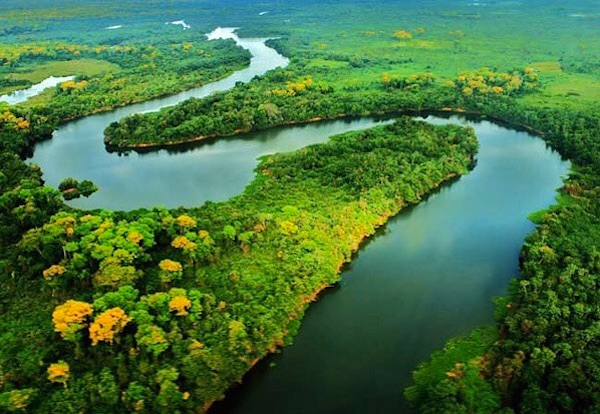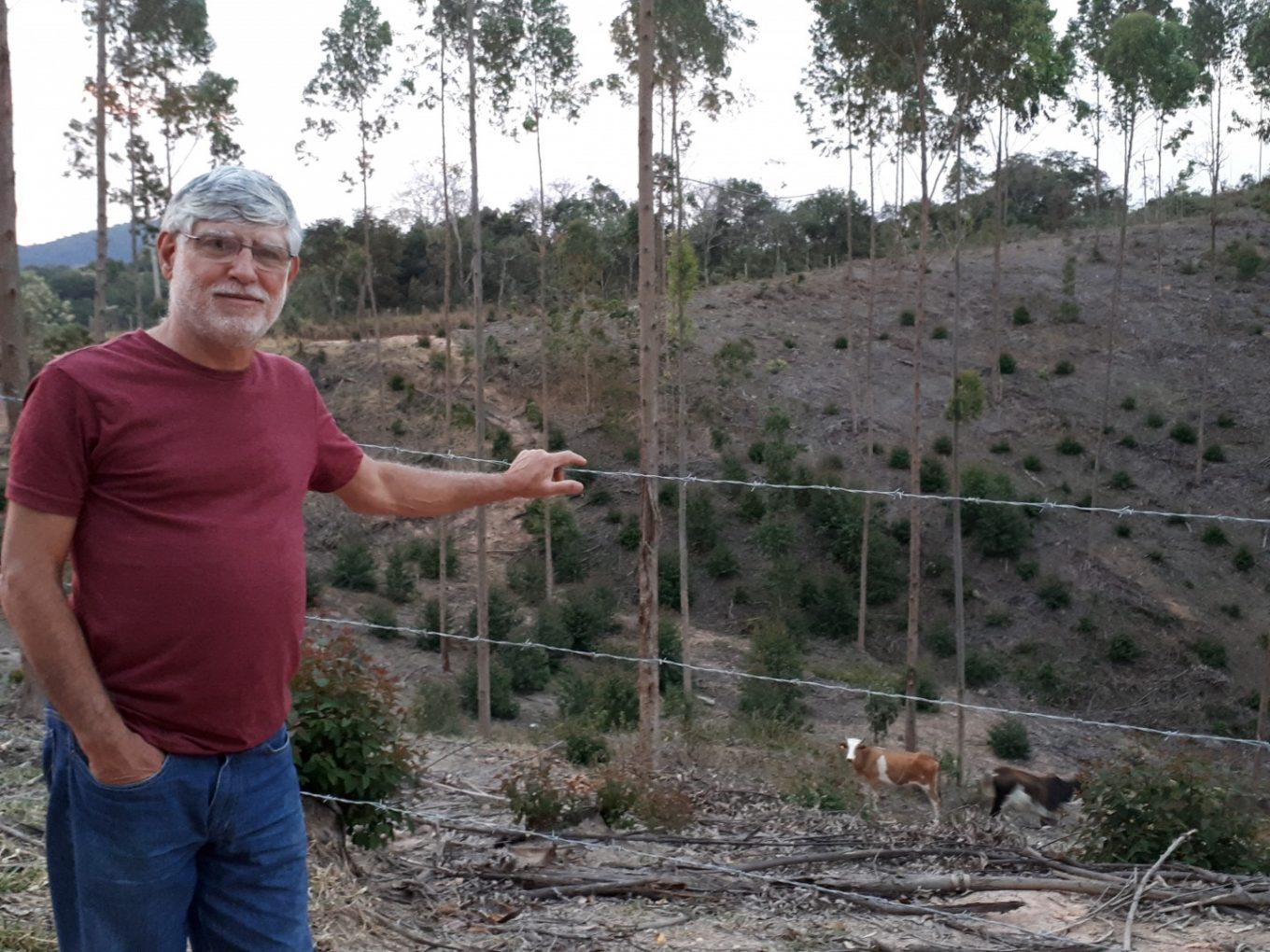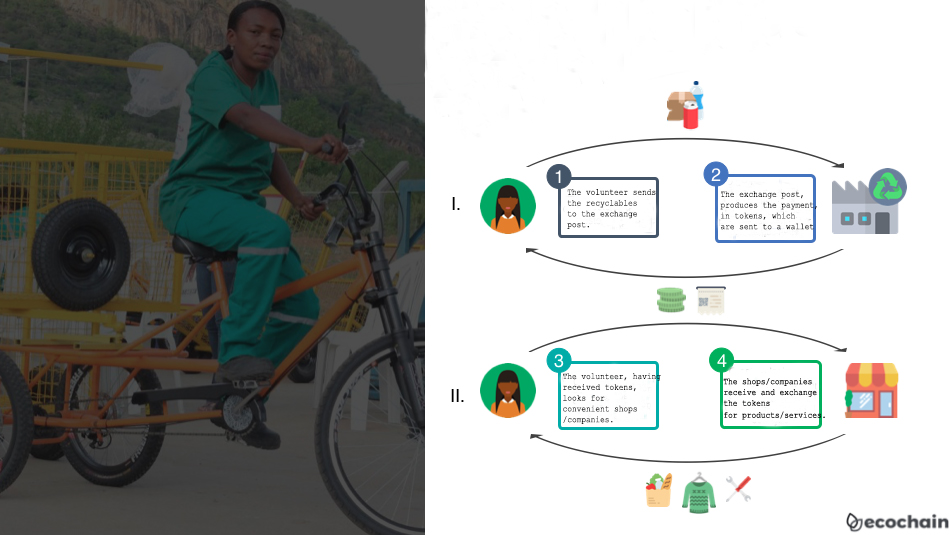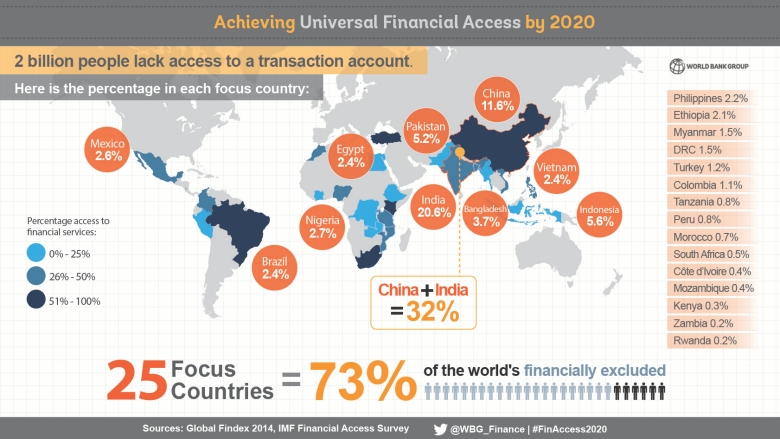
Blockchain and Social Impact in Brazil Interview With António Limongi França
Intelligenthq had the pleasure of interviewing António Limongi França, who has worked in the technological field since 1985. António Limongi França is a renowned author, lecturer and entrepreneur who has a wealth of experience in the technological sector. He is a top influencer and spokesperson about blockchain technology, widely acclaimed in Brazil.
Having worked in the technological and entrepreneurial field for various decades, António shared with us his insightful view on how technology has evolved and shaped the world over various decades and how the new blockchain technology can further impact and facilitate entrepreneurial projects with a strong social focus.
In this interview, we cover his career and some of his more recent projects and António tells us about the possible application of blockchain to contexts such as the agricultural sector, and how it can impact positively Brazil’s economy in order to promote social inclusion. Due to widespread enthusiasm in Brazil about blockchain technology, projects using blockchain technology are growing at constant pace in Brazil, such as, for example, Moeda, a cooperative crypto-credit banking platform. António Limongi is now developing ECOCHAIN, which is a project that aims to implement a household solid waste management system involving low-income families, using blockchain technology.
António Limongi is also a renowned scholar and researcher. In 2013 he concluded his PhD, taken at the prestigious University 9 of July ( a University with a strong ethos on social projects), where he researched the process of creation of knowledge, resulting from innovation in companies with a strong technological focus. He is an active author having published a book and various chapters in renowned journals, and is currently starting a Post Doc, which will research the use of blockchain in social businesses.
1.Can you tell us about you, your education and your personal and professional background?
I began working with Technological Information (TI) in 1971. From that time until now, I have worked with manufacturing companies, ERP systems, CAD/CAM solutions, Industrial automation systems, Internet services, systems development etc. In 1989 four professionals, I included, created a company named CIMCORP. That company was a SUN Microsystems partner, as well as Oracle, HP and many others´ partner. We integrated technological solutions, mainly in infrastructure.
In 1997 I started working with Internet solutions, as a services provider. In 2004 I created a consulting firm focusing in strategic growth initiatives. I have a graduation in Business Administration and another graduation in Law. Later on I took an MBA in Branding, a Master´s degree in Law and Economics and a doctorate in Innovation and in Strategic Administration. At this moment I´m starting a post doctorate research in Production Engineering at USP, São Paulo University. My focus is the use of blockchain in social businesses.

2. You have been working with entrepreneurship and digital technology since 1985. What has changed in the world with the impact of digital technologies, and what can we expect to see happen in the future?
During the eighties and nineties, companies like IBM, HP and Digital Equipment Corporations were references. They produced hardware and software, mainly. Most of the processes were centralized. Microcomputers were just beginning. Microsoft and Apple were not important companies, but they were starting to be relevant ones.
Nowadays, Amazon, Facebook, Google, SAMSUNG, Apple and Microsoft are at the top. Hardware and software are not the most relevant issues anymore but service (as software) that is the name of the game.
The idea George Orwell presented in his book “Big Brother 1984”, is now outdated. We chose to be connected and to have the information about us shared with people we do not know.
The future is worrysome because children nowadays have much more information than the adults of old times. They may not be able to process so much information in a useful and positive way. What will our future thinkers and entrepreneurs be like? To what extent will children be creative and to what extent will they be influenced by habits learned on the Internet much more than at home, in the family? What ethical and moral values will we have? These are some of the issues to be addressed.
3. Since 2012 you have been working with entrepreneurship and agriculture, and you are now the Co-Founder of ECOCHAIN – Blockchain, Agribusiness and social inclusion systems development. Can you tell us more about ECOCHAIN?
ECOCHAIN is the result of the integrated work of three business groups: FINCHAIN, which operates in the cryptocurrencies and blockchain markets, Ti2Ci, focused on solutions for smart cities, and LF1, specialized in technological innovation and business growth strategies. ECOCHAIN’s first product is a household solid waste management system involving low-income families. Such a system uses social cryptocurrencies and blockchain as support for the guarantee of information integrity.

4. How does ECOCHAIN work ?
The three business groups have equal participation in ECOCHAIN. Decisions are taken by consensus. There is no hierarchy, but the perception of the knowledge of each one and the natural respect for recommendations made by those who understand more about a certain subject. There is a strategic purpose that is a guide to principles, values and work. The current moment is unique and requires a lot of attention, creativity and wisdom in decision-making, conflict management and addressing unprecedented issues. Some of the thoughts that influence our daily routine are zero tolerance with ethical issues, initiatives that take into account social inclusion, and part of the income to be earmarked for social inclusion associated with our businesses.

5. You are very active in the blockchain community. How do you see blockchain as a driver for social impact and social entrepreneurship ?
Blockchain is the technological architecture that can support initiatives aimed at reducing social differences in humanity. Large corporations are not always able to act effectively in social matters, but they can support and participate in initiatives of social entrepreneurs. For example, in Brazil as in other undeveloped or developing countries, the phrase “bank for those who do not have a bank” has never been so current and relevant. Several small cities in Brazil no longer have physical agencies or ATMs because they have been blown up by bandits. The banks have not replaced the exploded ATMs. This is a very current fact, which generates a great opportunity for the use of cryptocurrencies in these localities. On the other hand, many low-income workers, in the city or in rural areas, do not have a bank account, but have cell phones. We have an immense opportunity for social action in these segments. In the matter related to real estate registration, everything is very expensive nowadays in Brazil. Governmental Identification Services will be extinguished one day and will be replaced by digital technologies guaranteed by blockchain or by something that supersedes it.
6. You just began a Post Doctoral Research about blockchain in social business, can you tell us more about it ?
My postdoctoral research is focused on the topics mentioned in the previous question. A first project deals exactly with the management of solid domestic waste in undeveloped countries, having as a single case a small municipality in Brazil that already uses a local system for the collection of solid waste by low-income families, focusing on education, social inclusion, environment and local economy. Social and blockchain cryptocurrencies will bring security and simplicity to the local system, developing a microeconomic environment that should spread to adjacent councils, with consequences still unknown, but of good potential of bringing positive social impact.
A second project will deal with the theme of social inclusion, in the line of “banks for those who do not have a bank”, starting with a review of the international literature, focusing on non-developed countries, and seeking a local issue, whether it is a functioning system or a prototype, using the DSR – Design Science Research method.

Image source WEF
7. Recently we have seen some major scandals concerning Blockchain ICO’s and its inappropriate use to brand projects that would promote social good, which are, in reality, fake. What is your take on this, and how can an investor choose an appropriate project that truly delivers what it proposes?
We live in a new world of technologies and their uses. When the commercial Internet appeared in the 1990s, there were also abuses and dishonesty in various initiatives. Many companies have emerged, few have remained alive and relevant. A lot of people lost money, but gained experience to be used now. Others have lost everything and have learned nothing.
We need to carefully analyzing the opportunities, especially those that are presented to us as alternatives displaying attractiveness above the reasonable. We also need to know the people who participate in these initiatives, which is not always easy. On the other hand, the new, the innovative, can also be scary. Without boldness there is no innovation; innovation opens space for those who have good faith and for those who take bad actions.
These things are part of the game of technological advancement at the absurd speed we have these days. There are usually more resources than projects. The problem has been exactly the choice on the part of the investors on where and how to invest well. Honest and competent people, consistent and relevant projects in their purposes, references to people’s recent past and achievements, and a quiet evaluation of the potential for project success are some of the items relevant to investor analysis and decision.
In short, there is no magic formula, but there is a need for attention, discernment, wisdom and calmness in choices.
8. What is your opinion about the impact of some cryptocurrencies such as Bitcoin, on the environment, and what steps should be taken to tackle this?
I understand that the question refers to the impact of miners in the environment because of the immense energy they use in the mining of cryptocurrencies for the formation of blocks, especially bitcoin. This situation requires radical innovation in the mining process. It is not possible that electrical energy is a restrictive and destructive factor of the environment, when the world moves in the opposite direction.
This is the most vulnerable point of the current distributed architecture in open peer-to-peer networks. Certainly some entrepreneurs are, at the moment, studying disruptive alternatives in this subject.
9. What are your views about the future of Blockchain and AI. Do you think they will be come powerful trends? What are their challenges and opportunities ? What’s your opinion about its ethical boundaries?
AI (Artificial Intelligence) is a mature subject, although in a phase of rapid evolution. Its use facilitates our day to day. NETFLIX, UBER, Auto-Correction in cell phones etc. are good examples of AI use.
Blockchain and AI together can take us to the autonomous company, a situation in which UBER itself would cease to exist in its current format. AIRBNB would also need to change its format in the near future, depending on the developments of AI and blockchain together. An intelligent lock, something that comes from the world of IoT – Internet of Things, would complete a solution to compete with current models of space leasing.
As always, technologies can be used for good and bad. Take the example of drones. They can be used to take medicines to hard-to-reach places, but they can also be used to bring illicit drugs to the same places. Autonomous companies with algorithms developed obscurely by dishonest people could do immense damage in economy and society, but it seems to be a matter of time until the emergence of autonomous companies. We can not stand still.
State intervention in the economy has never been so necessary and dangerous. On one side there is the natural freedom of choice and entrepreneurship. On the other hand, it is up to the State to create a public environment conducive to doing good. Easy to talk about, too difficult to choose the correct initiatives.
10. You are the author of the book Small and Micro companies in the Brazilian Law, Ed, Juruá. Can you tell us more about your book, and other planned books in the pipeline?
The purpose of the book was to confront the regulatory environment of small and micro-enterprises in Brazil in face of the constitutional precepts on the subject. Initially, I studied the question of state intervention in the economy seeking the protection of consumers and small business owners against large capitalist corporations, cartels and large market concentrators. I have tried to show that in Brazil, small companies have strategic importance for the development of the country, showing that Adam Smith’s principles of perfect competition in free markets take place in the interior of Brazil, in small and distant cities where neither famous big brands nor big supermarkets come near.
After researching constitutional precepts from Germany in the aftermath of the First World War and studying authors such as Canotilho and other international authors, I demonstrated that ordinary legislation deconstructed what the Brazilian Constitution of 1988 built in relation to the protection of small and micro-enterprises in Brazil. The work is from 2011, and from then on the legal aspects related to small and micro enterprises have improved.

Maria Fonseca is the Editor and Infographic Artist for IntelligentHQ. She is also a thought leader writing about social innovation, sharing economy, social business, and the commons. Aside her work for IntelligentHQ, Maria Fonseca is a visual artist and filmmaker that has exhibited widely in international events such as Manifesta 5, Sao Paulo Biennial, Photo Espana, Moderna Museet in Stockholm, Joshibi University and many others. She concluded her PhD on essayistic filmmaking , taken at University of Westminster in London and is preparing her post doc that will explore the links between creativity and the sharing economy.










